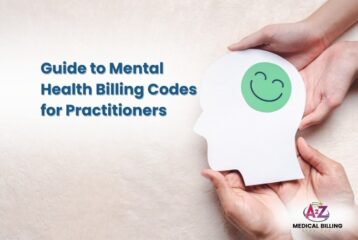Nursing Home CPT Codes are designed to help these facilities accurately bill their clients for the services they do so that insurance and Medicare will pay them for what they give. This is being able to apply billing criteria efficiently and understanding a variety of CPT codes, ranging from those for routine visits to skilled nursing facilities to those for specialist treatments. To improve financial accuracy and compliance, the objective is to manage the complicated details of nursing home billing, including SNF billing criteria and codes for assisted living visits.
Understanding Nursing Home CPT Codes
For insurance companies and Medicare to reimburse nursing homes for their complete care, uniform billing codes are necessary, and these are known as nursing home CPT codes. From routine nursing home care to more specialized skilled nursing facility treatments, these codes cover a broad range of services. To guarantee that facilities are fairly compensated for the care they offer, maintain financial stability, and abide by healthcare regulations, it is essential to follow nursing home billing requirements and use these CPT and ICD-10 codes accurately.
The Basic Concepts of Nursing Home CPT Codes
In medical billing, CPT codes are essential because they provide a standardized method by which healthcare professionals can appropriately record and account for services rendered in assisted living facilities. These codes cover several different services:
Regular Check-Ups: Conduct routine patient assessments using certain CPT codes for nursing homes.
Complex Procedures: The codes used for more complex medical services provided by assisted living homes.
Skilled Nursing Services: Specialized CPT codes for advanced care given in skilled nursing facilities are available for skilled nursing services.
Understanding and applying these codes correctly is essential for accurate nursing home invoicing, guaranteeing that establishments receive just compensation for the services rendered. This information encourages efficiency and transparency in healthcare billing procedures, which is beneficial to medical billing professionals.
Important Nursing Home CPT Codes Explained:
CPT codes for nursing homes accurately represent the range of care services offered and are necessary for billing purposes. These codes apply to two main categories of services, which are:
Routine Care Codes: By recording daily patient monitoring and necessary medical care, these codes allow facilities to bill for the basic assistance they give to patients regularly.
Therapy Services: Physical, occupational, and speech therapy sessions are included in the therapeutic services. To bill the specialist rehabilitation treatments that aid patients in recovering and protecting their functional abilities, these particular CPT codes are essential.
Understanding CPT Codes for Skilled Nursing Facilities
Advanced care is provided by skilled nursing facilities; to appropriately record and bill for the services rendered, these institutions need a specific set of CPT codes. Knowing these codes is essential to guaranteeing proper compensation and compliance with billing guidelines.
Specialized Care Codes: Designed to meet the complicated requirements of residents, these codes include everything from IV therapy to wound care.
Rehabilitation codes: Dedicated to services related to speech, occupational, and physical therapy that are necessary for patients to recover.
Interpreting CPT Codes for Skilled Nursing Services
To properly record the complex and prolonged treatments that patients get, CPT codes for skilled nursing care are necessary. Precise documentation is required to ensure that the facilities receive proper reimbursement for their services, which is ensured by these codes.
Complex Procedures: These are the codes for advanced medical procedures and nursing-specific treatments.
Long-term Treatments: CPT codes for continuing care programs that cover rehabilitation therapies and the management of chronic conditions.
Understand these skilled nursing CPT codes to make the billing process more accessible and transparent by explaining the complicated nature of these codes in simple terms. This will allow skilled nursing facilities to concentrate on delivering high-quality care while obtaining the necessary funding.
ICD-10 Codes Commonly Used for Skilled Nursing Facilities
A range of ICD-10 codes are used by skilled care institutions to appropriately record patient diagnoses. These identifiers are essential for billing and guaranteeing that patients receive individually tailored care.
Injury and Recovery Codes
Falls:
W00-W19 (slip, trip, and fall accidents) and S00-S09 (head injuries)
Surgical Recovery:
Z48.81 (Musculoskeletal Surgery: Consult for surgical aftercare after surgery)
Management of Chronic Conditions
“Management of Chronic Conditions” involves ongoing care and treatment strategies to control long-term health issues, improving patient quality of life. The specific Chronic conditions include the following:
Diabetes: Diabetes mellitus codes E10–E14
Hypertension: I10 (Essential (primary) hypertension)
Streamlining Nursing Home Billing with Accurate Codes
Strict adherence to precise CPT and ICD-10 codes is necessary to streamline nursing home billing procedures and guarantee that rendered services are appropriately recorded and paid. This is essential to obtaining timely payments from Medicare and insurance providers, which helps nursing homes run more smoothly financially.
Simplified Guidelines for Nursing Home Billing
Get familiar with billing codes:
It is crucial to understand the standard ICD-10 codes used in skilled nursing institutions as well as the unique CPT codes for nursing homes. This covers every aspect, from regular care services to specialized medical care.
Respect for Regulations:
Following the SNF and nursing home billing rules guarantees that billing procedures comply with legal requirements, lowering the possibility of mistakes and rejections.
Avoiding Common Mistakes in Nursing Home Billing
For financial stability and compliance, nursing homes must provide proper billing. Frequent mistakes might result in serious problems, such as audits and fines. Recognizing these errors is the first step in preventing them.
Incorrect Coding
Accuracy is Key:
Make sure that the right CPT codes for nursing homes are applied to the services performed by checking this twice.
Remain Up to Date:
Stay informed on revisions to skilled care facility coding requirements and nursing home billing codes.
Managing Under- and Up-Coding
Recognizing the Difference:
Undercoding is the practice of billing for less intensive services than completed, whereas upcoding is the practice of billing for more expensive services than provided.
Keep Your Integrity:
Make sure your billing is accurate to prevent audits and fines related to improper coding methods.
Extensive Source for SNF Billing Codes
A certain set of billing codes is used by Skilled Nursing Facilities (SNFs) to precisely record the care given to residents. To guarantee that SNFs are paid fairly for their services, these codes are essential.
Understanding SNF CPT Codes:
Specificity Matters: To guarantee accurate invoicing, each treatment offered inside an SNF has a matching CPT code.
Continual Updates: To ensure billing accuracy, stay up to date on the most recent changes to SNF billing codes.
Understanding SNF Billing Requirements
Complying with SNF billing regulations is necessary for maximum reimbursement and compliance. To guarantee that SNFs receive payment for the specific care they provide, these rules specify how to use billing codes correctly.
Following the Guidelines
Detail-Oriented Documentation: To comply with SNF billing requirements and prevent denials, accurate documentation is essential.
Knowledge is Power:
Learn the ins and outs of SNF billing procedures so that you can accelerate the reimbursement process.
Medical billing professionals and SNF staff can guarantee efficient and compliant billing procedures by becoming well-versed in SNF billing codes and rules. This information contributes to the facility’s continued provision of high-quality care for residents as well as its financial stability.
Important SNF Billing and CPT Codes
The wide range of care and services offered by Skilled Nursing Facilities (SNFs) is properly documented through the use of certain CPT and billing codes. To guarantee that SNFs get the proper compensation, these codes are essential.
Rehabilitation Codes
Therapy-specific Rehabilitation Codes: These are codes that accurately reflect speech, occupational, and physical therapy sessions.
Impact on Recovery: Required in order to bill patients for rehabilitation services, which are vital to their recovery.
Specialized Care Codes
Unique Treatment Billing: Specialized treatments and procedures specific to SNFs are coded for in distinct treatment billing.
Comprehensive Care Documentation: Enables comprehensive invoicing of complex care given to residents through comprehensive care documentation.
Medical billing professionals and SNF personnel must be aware of these crucial SNF CPT and billing codes in order to ensure proper documentation and payment for the specific care provided.
Enhancing Billing Practices for Hospital at Home Services
Hospital at home services, which combine home care with the detailed services of a hospital, is a developing area of the healthcare industry. For this model to accurately reflect the care given outside of traditional hospital settings, advanced billing procedures are required.
Customizing Billing to Home Care: Changing billing procedures to conform to the model of home-based care.
Particular Service Numbers: Using CPT codes that accurately reflect the core of home health care delivered at the hospital level.
To guarantee that services are accurately documented and reimbursed, hospital at-home providers need to come up with creative billing methods. To maximize billing procedures, medical billing specialists must become familiar with the complexities of this care model.
Considering Home Hospital Billing Guidelines
Hospital at home programs require a special billing strategy because they are intended to provide complete treatment in the patient’s home. These systems make sure that the provision of hospital-level treatment is acknowledged and paid appropriately by using a certain set of rules and CPT codes.
Understanding Special Guidelines: Recognizing the hospital at-home care billing regulations.
Using the Correct CPT Codes: Select and apply the CPT codes that most accurately represent the in-home delivery of hospital-quality services.
CPT Codes Specific to Hospital at Home Services
Hospital at home services provide all the standard medical attention that is provided in hospitals, but in the convenience of the patient’s own home. To ensure proper invoicing and reimbursement, certain CPT codes are needed for these services.
Codes for In-Home Care:
Specifically designed to cover a wide range of in-home hospital-level care services.
need for in-home medical care invoicing and documentation.
Services for Telehealth:
The increasing reliance on remote medical delivery is reflected in critical CPT codes for telehealth services.
Important for billing virtual consultations and monitoring. Medical billing professionals and healthcare practitioners who provide telehealth and home-based services must be familiar with these CPT codes. It guarantees that hospital-quality care provided outside of conventional settings is accurately recorded and paid for.
Maximizing Compensation through Skilled Nursing Facility Coding Standards
For skilled nursing facilities to get paid as much as possible, coding requirements that accurately represent the degree of care given must be strictly followed.
Accurate Documentation: Ensuring that all services have accurate documentation using the appropriate codes.
Guideline Compliance: Correctly reflecting the care level through compliance to particular coding criteria.
Skilled nursing facilities must understand and follow certain coding requirements to receive proper compensation, which has a direct effect on their financial stability.
Top Techniques for Coding Skilled Nursing Facilities
For skilled care institutions to guarantee they receive full payment for the services provided, they need to conform to proper coding methods.
Consistent Training: Providing employees with regular training on the newest coding techniques.
Quality Control: Conducting routine audits to guarantee correct coding.
Following proper coding procedures guarantees that service is appropriately invoiced and compensated, which contributes to the financial stability of skilled nursing institutions.
Advanced Coding Techniques for Skilled Nursing Facilities
Modifier codes and other advanced coding approaches are crucial for appropriately reflecting the complexity of care in skilled nursing facilities.
Using Modifier Codes: Increasing code accuracy to represent care complexity through the use of modifier codes.
Continual Learning: Staying abreast of modifications to coding standards and practices.
By using advanced Coding methods, skilled nursing institutions may more precisely record the specific care they offer, guaranteeing correct payment and establishing the standard of treatment.
Let’s Recap
To sum up, understanding the complicated nature of CPT codes for nursing homes is essential to guaranteeing correct billing and optimizing reimbursement. care facilities can manage billing problems by using separate CPT codes for different services, following the most recent recommendations for skilled care facility coding, using best practices, and using advanced coding techniques. By keeping up with changes in billing codes, particularly those related to telehealth and specialized services, institutions can continue to operate profitably while continuing to offer outstanding healthcare. This strategy supports nursing homes’ vital position in the healthcare ecosystem by ensuring that they are fairly compensated for the necessary services they provide.



